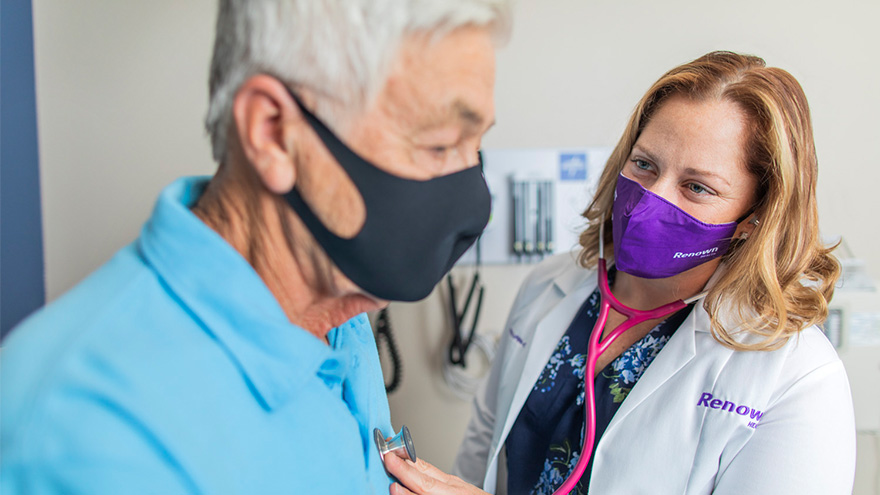Buscar
-
Primary Care vs. Urgent Care vs. The ER
When seeking medical care, there are several different provider types and options from which to choose. For example, you may have asked yourself a common question: Should I go to my primary care provider, urgent care or the emergency room? Sarah Herbert, APRN with Renown Medical Group – South Carson, provides guidelines to help you easily make this decision. When should you go to the Emergency Room (ER)? Making a visit to the ER should be reserved for severe symptoms and/or life-threatening conditions, including: Chest pain Severe shortness of breath or difficulty breathing Weakness or numbness on one side Slurred speech Fainting/loss of consciousness Continuous bleeding or major open wounds Severe allergic reactions Coughing or throwing up blood Drug or alcohol overdose Sharp pain in lower abdomen Severe dehydration and not responding to nausea medication (needing IV fluids) High fever that does not get better with medicine Serious burns Broken bones/dislocated joints Head trauma Find an Emergency Department Near You If you’re still unsure of where to go for appropriate medical care, it’s best to check with your primary care physician. And remember, for a life-threatening emergency, call 9-1-1 immediately!
-
Meditation: Give Yourself the Gift of Inner Peace
As we enter the holiday season, many of us are beginning to plan and partake in festivities such as shopping, cooking, baking, holiday parties and family gatherings. While the holidays often bring joy and cheer, the hustle and bustle can also lead to fatigue, stress, anxiety and sometimes depression. To avoid holiday burnout, it’s important to find ways to care for yourself mentally and physically. Galen Gorelangton, Renown's Spiritual Center Volunteer, discusses how yoga and meditation can benefit you. What is yoga and meditation? Yoga is defined as performing a series of postures and controlled breathing exercises to promote a more flexible body and a calm mind. As you move through poses that require balance and concentration, you're encouraged to focus less on your busy day and more on the moment. Meditation involves focusing or clearing your mind using a combination of mental and physical techniques. While there are many different types of meditation and yoga practices, they both share similar benefits including: Reduced stress Lower blood pressure Decreased anxiety and depression Increased energy Better sleep Lower inflammation and pain levels Improved strength, balance and flexibility Better focus and concentration And much more!
Read More About Meditation: Give Yourself the Gift of Inner Peace
-
Make Hydration a Priority for Your Health
As the temperatures skyrocket and we return to more outdoor activity, one thing is certain: you must hydrate to stay cool, healthy, and functional. But how much water do you need, and what are some easy ways to ensure you are getting enough? Aurosis Reddy, DO a family medicine provider with Renown Medical Group, shares what you need to know. How Much Water Is Enough? Experts agree that recommended daily water intake can vary depending on different factors such as your weight, metabolism, location, diet, physical activity, and health. As a rule of thumb, women should aim for a daily fluid intake of 91 ounces, and men should aim for 125 ounces. It is important to listen to your body and recognize when you might need to increase your water intake. For example, if you’re partaking in strenuous exercise, or spending time outside in the heat, you’ll want to give your body more water and electrolytes to function properly. How Can I Tell If I Am Dehydrated? Decreased coordination Fatigue Less urination Dizziness Dry, sticky lips and mouth Increased thirst Headache


